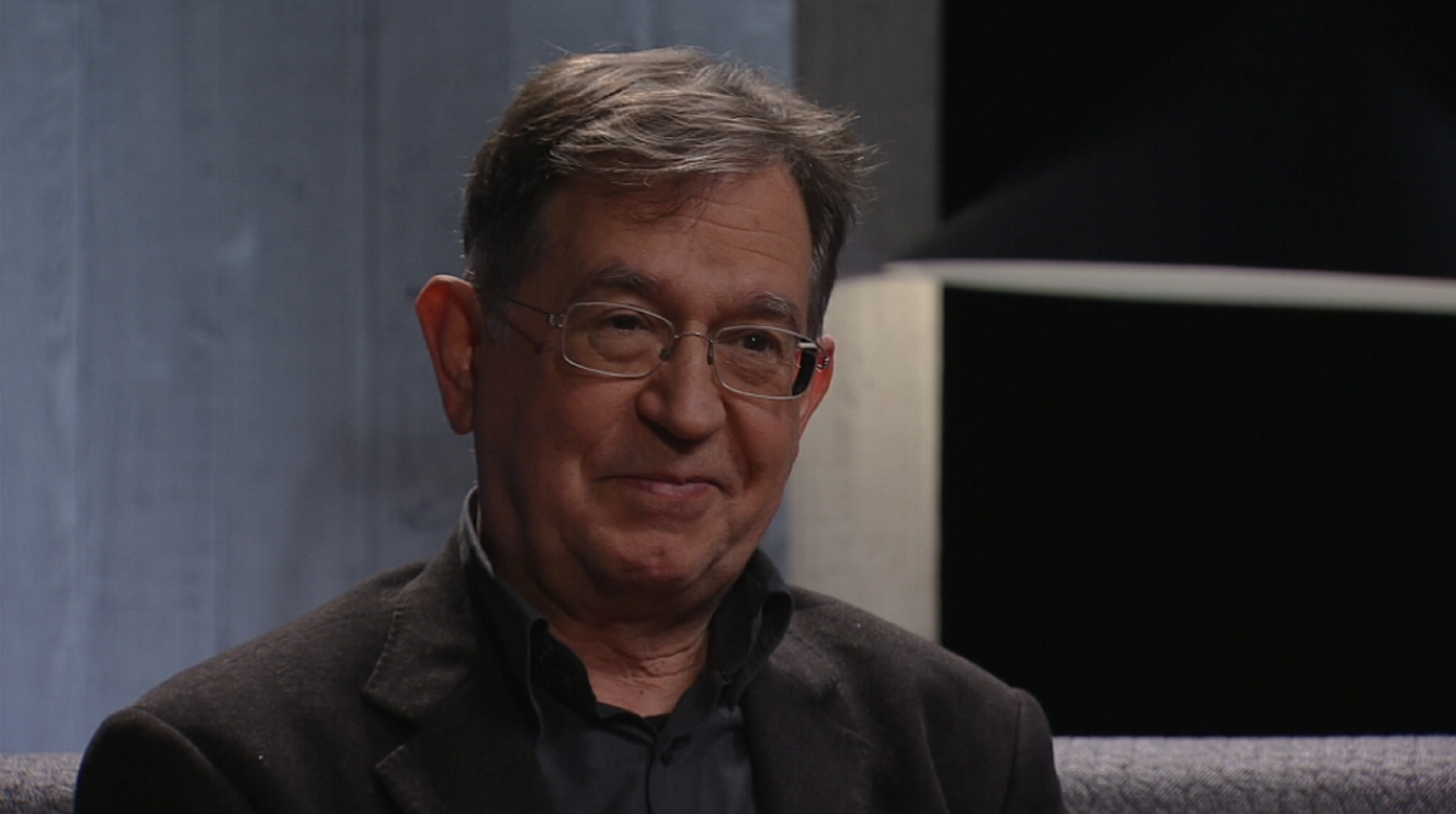A Spaniard, or a Galician to be specific, who points a finger at that unsustainable, furiously anti-Catalan Spain. That was the offering from Catalan public channel TV3's programme El Divan - The Divan - on Sunday. Suso de Toro was the guest. And he opened up about what might be called the Madrid-ified Spain: "Madrid acts like a black hole: it sucks in everything, the Madrid business 'court' absorbs every company, everything ends up in the capital's Paseo de la Castellana. I know the difficulties of dependency. Galicia has been plundered." He also explained the reason for his love for Catalonia: "Everything has come to us from Catalonia, the most democratic ideas, the literary publishers".

TV3
And inevitably he refers to the independence process: "If the Catalans become free there will be another coup d'etat like in 1936. The Spanish government has played with the idea of putting armoured cars on the Ramblas. Spain's only idea is to establish fear of the state, and this is the failure of Spain. The terrible thing in this Spain is that demanding democracy is revolutionary."
On the paper played by Felipe VI and the crown: "The monarchy, we eat it up like our daily bread because Franco left Spain, as he said, "atado y bien atado" - very well secured. With a pistol on the table in 1978 [year of the Spanish constitution] we were told to either take it or leave it. The article of the constitution that connects the armed forces to the unity of Spain was drafted by the joint chiefs of the armed forces - this was revealed by a Catalan jurist who was one of the 'fathers of the constitution': Jordi Solé Tura."

TV3
He is a machine for generating headlines, and he continues with the subject of anti-catalanism: "The media are equivalent to the army, with a power of intimidation which has made brainwashed Spaniards about Catalonia. Hatred and resentment towards Catalans has increased. People who have never been to Catalonia speak ill of the Catalans. Nobody is born anti-Catalan, this has been created by the media. And it has no solution within a generation."
Is the problem only with the PP (Popular Party)? Suso de Toro answers by referring to former Spanish PM Zapatero, a socialist from the PSOE, who the Galician recognises as a personal friend: "He defied the imperial power of the US and had a sincere respect for, although no knowledge about, Catalonia. He wanted and he tried [to give Catalonia a new Statute of Autonomy in the years before 2010]. Until the last day he tried to prevent the Constitutional Court from torpedoing the Statute, with the support of his own party, the PSOE. He re-assigned a general to the reserve while the Statute was passing through parliament." De Toro insinuates the rattling of sabres during that negotiation, the temptation to send tanks to Catalonia - already - during the government before that of Mariano Rajoy.

TV3
And the most emotional moment for a Galician: Rajoy and the Prestige oil spill catastrophe, which struck Galicia in 2003: "I would prefer not to talk about that. I used it consciously to defend my country, I wrote to the king asking him to come to Galicia. The PP government that had created the problem left the population abandoned and the only left to do was ask the head of state directly. It was something unimaginable: the government simply abandoned its population. Now they would be more able. A more cynical action, impossible. They had a colonial idea of Galicia, a far away place, as though it were Siberia."
There is only one moment when a tear runs down De Toro's face as he remembers that disaster and the most shameful moment: when the PP government spokesperson of the day described what was coming out of the sinking oil tanker as "little trickles of plasticine". The spokesperson: Mariano Rajoy.

TV3
One hundred and twenty-three thousand Catalans watched an essential interview, but more importantly, El divan did a public service. It is Spain that needs to go on the divan.

